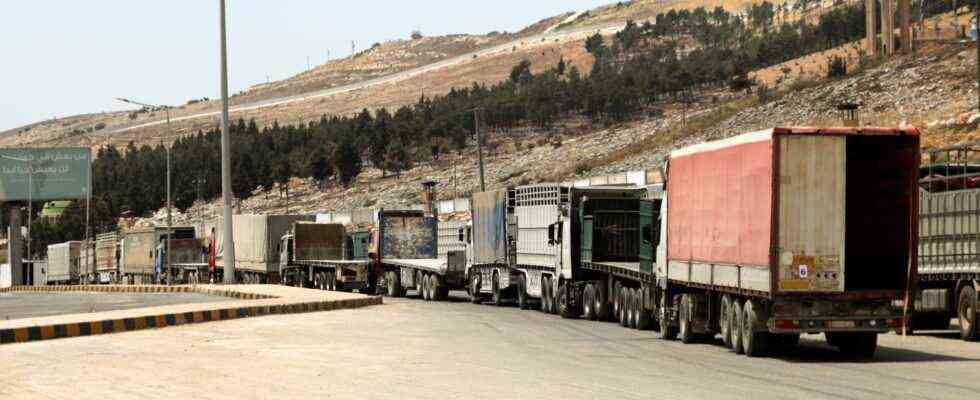Status: 07/08/2021 4:48 a.m.
Aid supplies are still reaching north-west Syria via the Bab al-Hawa border crossing. But the UN mandate is running out, and whether Russia will agree to an extension is questionable. A veto would have devastating consequences.
From Antje Passenheim,
ARD Studio New York
US Ambassador Linda Thomas-Greenfield appeals urgently to the UN Security Council not to just any border crossing. It is about millions of people in Syria who depend on it to stay open – for the trucks that bring food, drinking water and medicines to them via Turkey every month. People who pleaded with Thomas Greenfield.
“You told me frankly: Bab al-Hawa is your lifeline”, says the diplomat, who recently visited her in the war-torn northwest of Syria. According to the UN refugee agency UNHCR, around three million people in need in the rebel-controlled area cling to this lifeline.
“Don’t turn your back on people”
There is no mistaking it: This access must absolutely be maintained safely and without delay by a new UN resolution, demands the Executive Director of the UN Children’s Fund, Henrietta Fore: “We can support the 3.4 million people who live there, Don’t turn your back – including 1.7 million children. They live in overcrowded camps. Often without access to electricity, medical care or drinking water. ”
And Fore knows: “This help is the only lifeline they have.”
At first there were four border crossings
But it could now be finally cut. Russia is threatening to veto the extension of the UN mandate. At the instigation of Russia, since the start of the aid mechanism in 2014, of the four previously open border crossings into the region, only this one has remained for the aid route – Bab al-Hawa.
Now Moscow wants to collect him too. A muscle game, says the UN director of the human rights organization Human Rights Watch, Louis Charbonneau: “It is not clear what Russia wants other than to support the demands of its military ally, the Syrian government.”
Aid supplies as a means of pressure
In this spirit, Moscow argues: Humanitarian aid does not need to cross this border, but could just as easily be brought via Damascus to the needy in the rebel areas. But that cannot be trusted, says Charbonneau: “We know that the Syrian government uses aid as a weapon to punish those it considers disloyal and to reward those who are loyal for doing so.”
Assad has already shown, using the example of Homs or Aleppo, that he is ready to refuse his own compatriots help and starve people. There is no alternative to extending the mandate for at least another year, say helpers from all organizations involved, including UN chief Antonio Guterres.
No alternative is offered
But Russia is leaving it cold, says observer Robert McMahon from the Council on Foreign Relations think tank: “You are just saying very clearly: We no longer want this border crossing from Turkey. You are not saying: We want this or that instead.”
The other member states therefore lack the basis for concrete negotiations. Because there is nothing to negotiate about the need for vital help itself. In a race against time, they are looking for a lever to prevent the impending veto, which China could also join. You can only rely on the fact that the humanitarian aid – as it has been running up to now – will be largely financed by Western states and Moscow does not want to risk having to be left with these costs in the future.
Because the hope remains: that Moscow does not want to lose face in front of the world and can ricochet a UN appeal with a veto, which is about life and death in addition to human dignity, as US Ambassador Thomas-Greenfield warns again: The effects would be obvious: people would starve to death. ”
UN aid to Syria before the end
Antje Passenheim, ARD New York, 7/7/2021 8:45 p.m.

